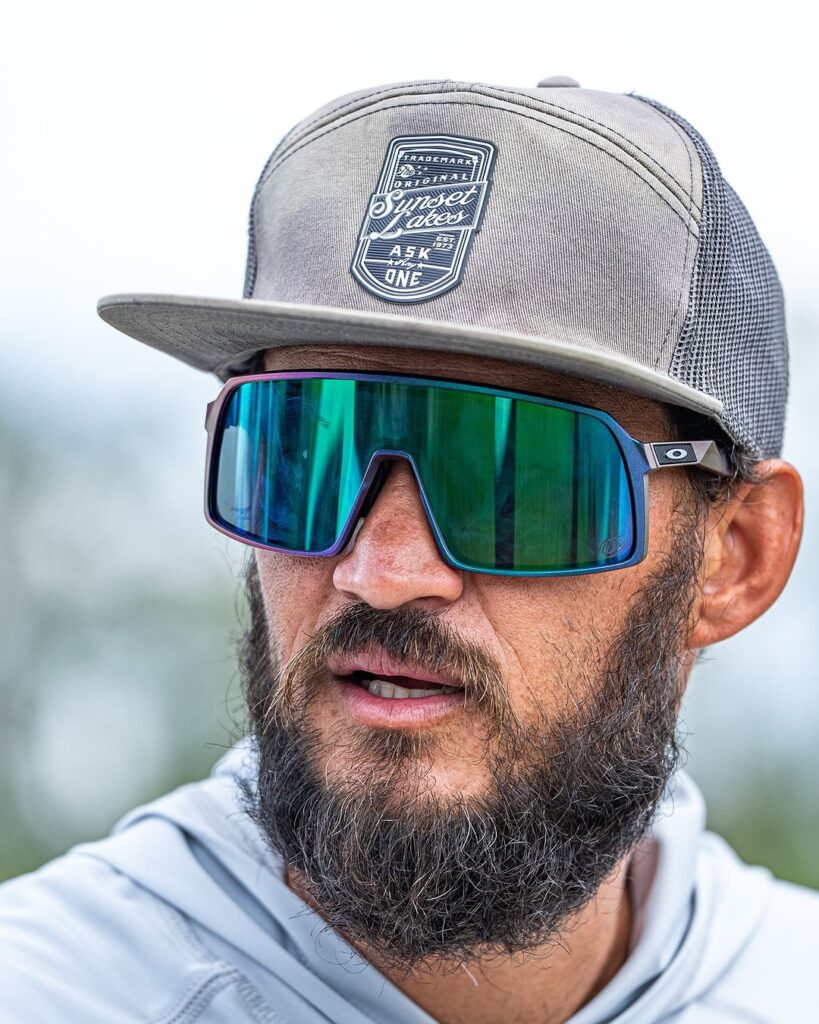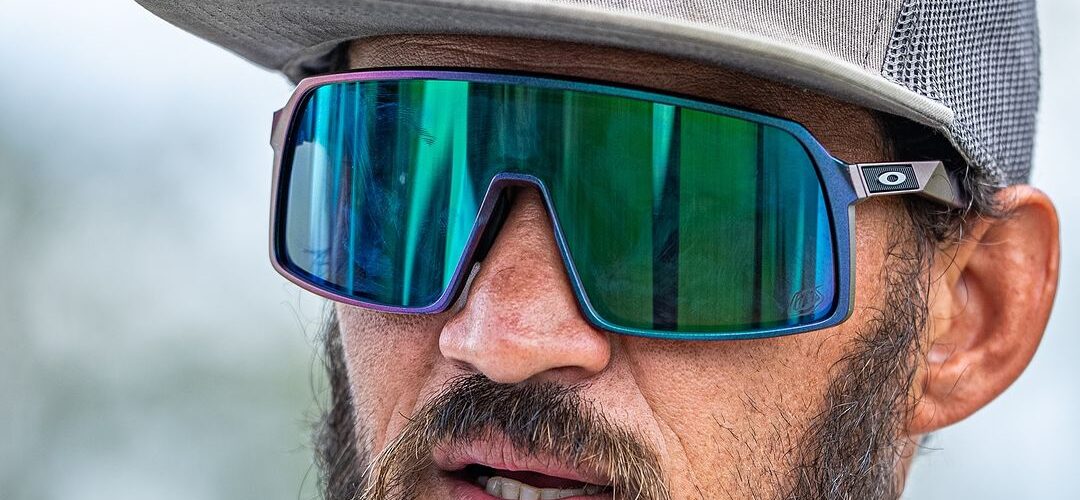Jonathan Travers speaks out: Inside the controversy that ended a 14-year sponsorship

Image: @hoskis
By Jack Burden
The world of professional waterskiing is no stranger to high-stakes competition, moments of glory, and, occasionally, controversy. Earlier this year, veteran athlete Jonathan Travers found himself at the center of a storm—both literal and metaphorical. After a contentious Masters Last Chance Qualifier (MLCQ) event, Travers was dropped by his long-time sponsor, Nautique, after 14 years of partnership. Now, he has decided to speak out about the controversy that stemmed from that event, sharing his side of the story, how it has impacted his career, and the broader implications for the sport.
In an exclusive interview with Tony Lightfoot on the TWBC Podcast, Travers expressed frustration and disappointment with how the situation was handled. He believes his side of the story hasn’t been properly shared, and that many key factors leading to the dispute were overlooked.
Masters Qualifier Turns Sour
The incident occurred at Winter Garden Water Ski during the first MLCQ Series event of the year. This qualifier is crucial for skiers hoping to secure spots at the Masters Waterski and Wakeboard Tournament, one of the sport’s longest-running and most prestigious competitions.
Travers, along with five other athletes, tied for second place after two rounds, each scoring 4@10.25m (41′ off). With only three spots available, a runoff was scheduled to determine the qualifiers. However, strong winds had worsened conditions, making it unsafe for skiing. According to Travers, the Safety Director initially called off the runoff due to the weather, but the tournament organizers insisted that the competition continue.
“There’s a time and place for skiing in rough conditions,” Travers said, reflecting on the situation. “But when we’re skiing… at that kind of level… where there’s nothing on the line except to pay another entry [fee] to go to another tournament, it’s hard to make the the athletes ski in that.”
Travers voiced his concerns to the Chief Judge, requesting a brief break to let the weather improve. “I said, ‘We need to stop. There’s no reason to make us ski in [conditions like this]… In 20 minutes the weather says its going to blow through—it’s Florida.’” According to Travers, the conditions were so bad that he hadn’t skied in winds that rough even at Callaway Gardens, home to the US Masters, in over a decade of competing there.
Despite these concerns, the competition continued. Travers, who was first off the dock, managed only 1.5 buoys on his first pass, with the skiers having to tackle 10.75m (39.5’ off) in what multiple competitors described as a white capping tailwind. Travers believed it was too dangerous to continue. “I told the guys in the boat, ‘This is unskiable. Someone’s going to get hurt, and it’s not worth it at this event.’”
As Travers returned to the dock, he gestured toward the officials in the judges’ tower. He claims that he simply raised his hand as if to say, “What are we doing?” but others interpreted it as an obscene gesture. Upon reaching the dock, Travers discussed the conditions with the officials, reiterating his concerns. “I might have said some words I shouldn’t have, and I’m sorry for saying those if anyone was there but I have a lot of passion for this sport, I have a lot of passion for every single athlete, I care about every single person.”
Despite the ongoing objections, the runoff continued. Of the six skiers, only Joel Poland successfully completed his opening pass, earning his spot in the Masters alongside Will Asher, the only other skier to make it past three ball. Tragically, Dane Mechler broke his foot during the runoff, an injury that would force him to miss most of the 2024 season.
“What are we doing?” Travers asked, still incredulous. “We’re not at a pro event, we’re not at an event that someone ever should get hurt at from a conditions standpoint, if I got out there and I hit a buoy and break my foot, that happens, but when you’re trying to turn three ball at [10.75m] after an hour break, cold [start], in white capping conditions, that’s not fair”
The Fallout and the Dismissal
Following the event, Travers was asked to participate in an interview with tournament officials regarding a gesture he made toward the judges’ tower during the runoff. Travers explained that he had raised his hand in a questioning motion to express frustration about the unsafe conditions.
However, rumors began circulating that Travers had made an inappropriate gesture, alleging that he had flipped off the judges. This accusation led to his eventual dismissal from Nautique Boats. According to Travers, this claim was false. “No one even looked into the situation enough to realize for 21 years, I’ve used Clincher or Syndicate Connect gloves,” he explained, noting that these gloves make it physically impossible to separate the middle and index fingers or straighten your hand, let alone give someone the finger.
Travers expressed disbelief over the lack of investigation into the matter. He explained that several judges in the tower worked for Nautique, and he feels the incident was mishandled, resulting in what he describes as a “setup” that led to his firing. ” I wrote emails, I texted, I called—no one replies to me,” he said, adding, “I feel like I got bullied.”
A 14-Year Relationship Ends
For Travers, the dismissal was especially painful given his long relationship with Nautique, a company he had represented for nearly 14 years. “[I’ve] done everything possible for that company… I still believe in that brand, I still love that boat… but the people involved in it really hurt me.”
Despite the turmoil, Travers continues to train behind a Nautique boat daily. “We’re still a Nautique family,” he said, but voicing his disappointment with the individuals involved in his dismissal. Reflecting on the LCQ, Travers admitted that, in hindsight “I would change my attitude when I came back to the dock, but there’s nothing I did on the water to the judges that I could ever say that I wish I did something different.”
The incident also raises questions about Nautique’s consistency in handling skier conduct and disciplinary actions. Five years ago, another Nautique athlete, Ryan Dodd, gave a fiery and emotional speech after winning the World Championships, criticizing event organizers following an injury to Jack Critchley during challenging conditions. The speech led to the webcast of the finals being taken down and reuploaded with the speech censored. However, Dodd, a world record holder and world champion, appeared to receive more leniency from the company. Similarly, world record holder Nate Smith remained with Nautique for years despite facing far more serious allegations within the waterski community. Perhaps this was just a convenient way to get Travers, now 36, off the books?
A Call for Change in the Sport
Travers believes the incident at the MLCQ sheds light on larger issues within the sport, particularly around athlete safety and the Masters qualification process. He criticized the current system, which was altered during the pandemic, for incentivizing participation in the MLCQ over professional events. “Now they’re pushing for people not to got to pro events, not to do the [Waterski] Pro Tour and just to go to their [MLCQ] tournaments,” adding “In my opinion, it’s kind of like a monopoly where May is a Nautique month and they want us to go pay multiple entry fees for no cash prize to try qualify for their Masters.”
He also voiced concerns about the timing of the LCQ event, which takes place just a week before the Masters, making travel and accommodations extremely expensive and difficult to arrange. “If you qualify the weekend before the Masters, there’s no hotels available, there’s no houses available—everything’s outrageously expensive. [But] if you could book it in when you already know, in December or November, you have options.”
Travers calls for a return to the old Masters qualification system, where skiers earned their invitations based on their performance on the Waterski Pro Tour or the World Ranking List. In his view the previous system encouraged young skiers to compete in more pro events. That’s what motivated him when he was starting out.
Looking Forward
Despite the personal and professional setbacks, Jonathan Travers remains committed to the sport. He is currently ranked sixth on the Waterski Pro Tour slalom leaderboard after one of his best seasons in years, including a victory at the San Gervasio Pro-Am. By speaking out, he hopes to inspire change in how the sport is governed and how athletes are treated.
“It’s not fair to the athletes, and it’s not fair to the [Nautique] team—that they call a ‘team’—when they don’t have meetings or talk to us and understand our side of things.” He added, “Without athletes, our sport is nothing,” stressing, “we [can’t] keep beating ourselves up at events that don’t really matter.”
For now, Travers remains focused on moving forward, competing at the highest level, and continuing his work as one of the world’s most sought-after technical controllers. While his relationship with Nautique may have ended, his love for waterskiing remains as strong as ever.
Note: Return to Baseline reached out to a representative from Nautique Boats for comment prior to publishing this article but received no response.

